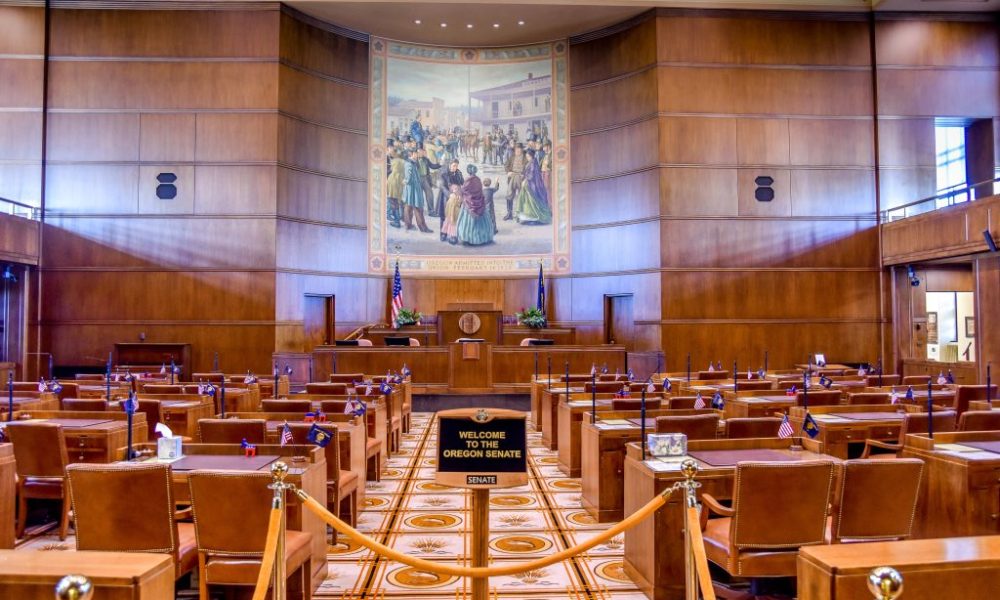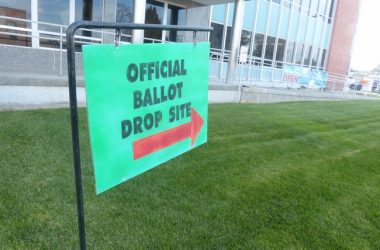ONTARIO — Malheur County leaders are trying to keep alive a legislative fix intended to unlock housing in the region as it faces strong headwinds that could torpedo years of effort to address the county’s shortage of affordable homes.
With a technical definition in state law blocking housing on farmland in irrigation districts, state Sen. Lynn Findley, R-Vale, proposed Senate Bill 70. The bill, assigned to the Senate Committee on Natural Resources, received scrutiny from conservation groups across the state during a public hearing in February.
Since then, the committee has taken no more action. With most legislation needing to be scheduled by March 17 for a committee vote to clear a legislative deadline, the bill remains on life support, according to Shawna Peterson, executive director of the Eastern Oregon Border Economic Development Board. That is a public body established to grow the economy within the region and a key piece of the legislative strategy.
According to Peterson, while she can only be sure once the five-member committee votes, she is not confident that there are three legislators on the committee who would approve the bill and move it along.
However, Peterson said that a Wednesday, March 8, conference call with the Oregon Department of Land Conservation and Development, Eric Evans, the Malheur County planning director, and representatives from a consulting firm the county has contracted with went well and she said they have crafted a compromise that could make everyone happy.
Two years ago, the legislation was proposed as a limited way to create new home sites on farmland with marginal agricultural use. At most 100 houses would have been allowed in Malheur County under that 2021 reform proposed by Findley. However, opponents of Senate Bill 16, passed in 2021, believe the legislation set a bad precedent in eroding Oregon’s land use planning system.
That legislation was supposed to open up 200 acres of farmland to housing development in the eastern Oregon border region.
Peterson said concern is misplaced because the legislation carefully protected what is defined as high-value farmland.
Under Senate Bill 16, any rezoning of farmland would require a public hearing by a review board appointed by the Malheur County Court. The review board was to include a representative from the farming community, a border board member, a court member and someone from the Malheur County Planning Commission.
The bill details the rezoning of some farmland into a minimum of two-acre lots that could total no more than 200 acres. In addition, owners would have to establish that the property is of limited value for agricultural production.
When county officials moved to implement that change, they discovered that a provision of the legislation relied on the boundaries of irrigation districts. The unexpected result is that mapping where homes could go in Malheur County proved problematic.
Peterson said a key issue now is how to define high-value farmland without creating yet another limit on the housing effort Malheur County is attempting to get approved.
The compromise that Peterson and others developed would include the definition in a part of state law that governs compensation to owners when land-use changes cut the value of their land.
Peterson and others do not consider potential amendments to be preferred but they would give the overall legislation a better chance of passing.
“If that’s the best we’re going to get,” Peterson said, “then we can pass it that way. It’s not a good practice. It’s not how laws should be made and referenced and we have an opportunity to do it right.”
NEWS TIP? Send an email to [email protected].
HOW TO SUBSCRIBE – The Malheur Enterprise delivers quality local journalism – fair and accurate. You can read it any hour, any day with a digital subscription. Read it on your phone, your Tablet, your home computer. Click subscribe – $7.50 a month.




